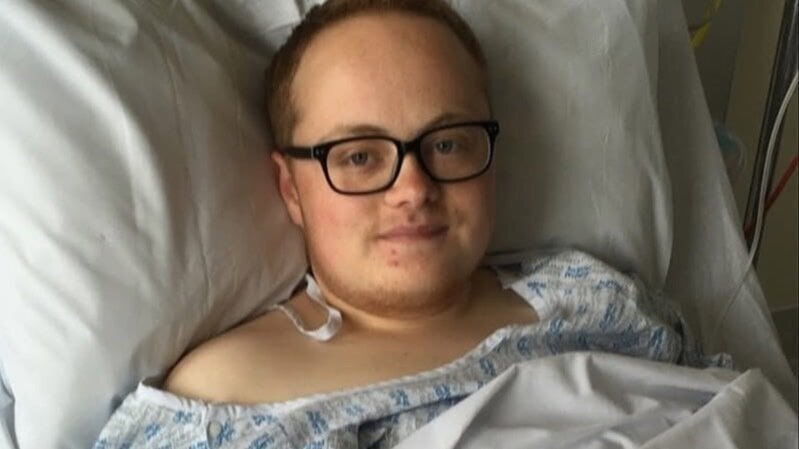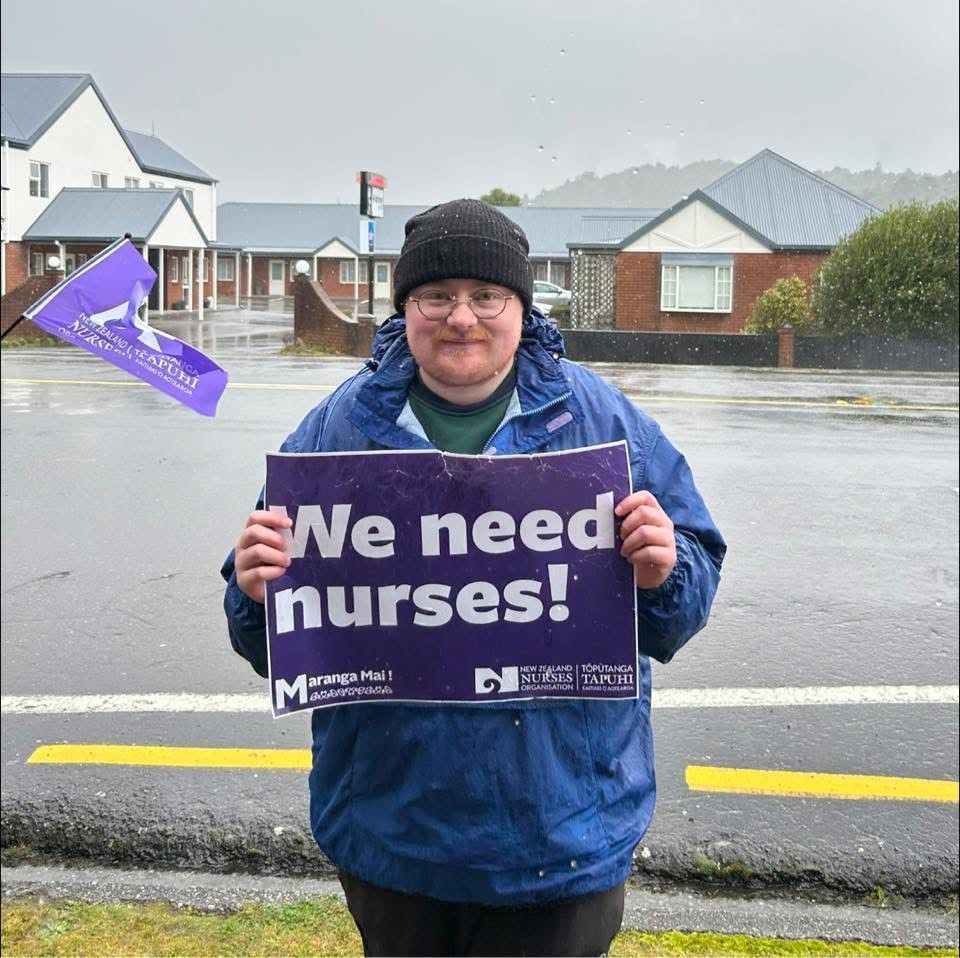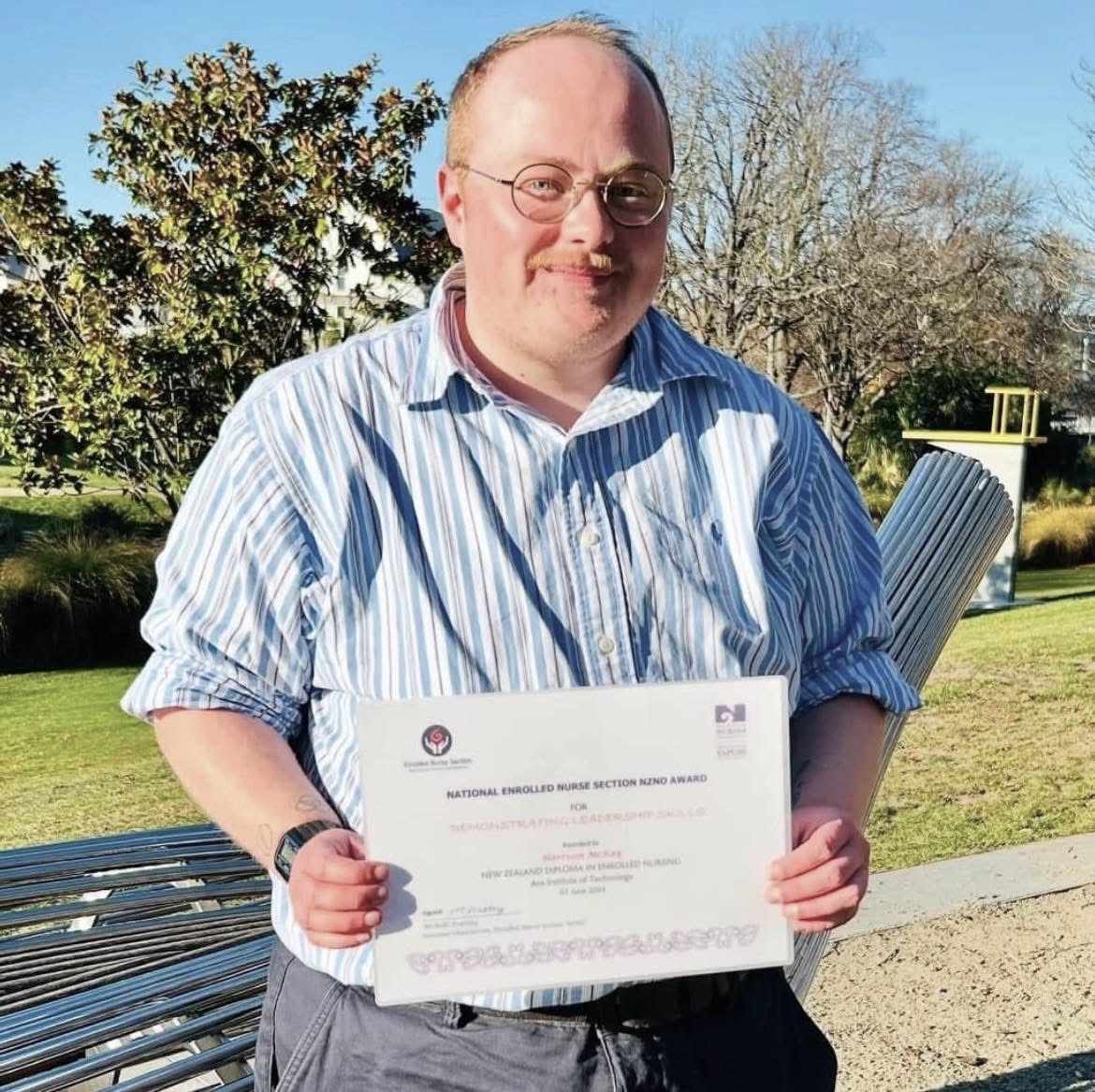I never imagined that my journey to become a nurse would leave me injured by the very system I wanted to work in.
In November 2021, I was a full-time student, a solo parent and a community volunteer. I was working hard to build a future where I could care for others. But a surgery in the public health system left me with a severe bladder injury — an injury that changed my life.
Since then, I’ve been hospitalised countless times. I’ve lived with chronic pain, recurring infections and, at times, spasms so severe they left me unable to function.
Despite all of this, I completed my nursing studies in 2024, and now work full-time as an enrolled nurse, and part-time as a medical receptionist.
Soon, I will undergo major surgery to remove my bladder — a direct result of the injury and the failure of every conservative treatment to manage the injury since.
It’s not something I ever wanted but it’s my only option now. Instead of focusing on healing, I’ll be losing sleep wondering how I’ll pay the bills, without earning for six weeks.
I’ll need extended time off work to recover. But the Accident Compensation Corporation (ACC) has denied me weekly income compensation because I wasn’t in paid employment on the day I was injured.

ACC, Minister, Labour respond:
ACC Minister Scott Simpson said ACC was guided by the Accident Compensation Act 2001, which defined who was eligible for weekly compensation.
Including non-earners for income compensation would expand the ACC scheme “considerably” and was not a current focus, he said.
“My current focus is on ensuring the scheme remains sustainable for future generations.”
ACC head of client recovery Matthew Goodger acknowledged McKay’s disappointment over being declined weekly compensation.
ACC could only cover lost earnings when the person was employed at the date of injury; and loss of potential earnings if they were under 18 at the time of accident or injury. Full-time students over 18 were not eligible under the current law.
While it couldn’t provide income support, Goodger said ACC was supporting McKay through surgery funding, counselling support and contributing to transport and accommodation costs. It had so far paid a total of $86,322 for these.
Labour’s ACC spokesperson Camilla Belich said Labour had not yet finalised its policy on ACC but appreciated feedback on how it could be improved and had taken McKay’s experiences “on board” after he wrote to her.
The New Zealand Human Rights Commission said it could not confirm or discuss complaints as all were completely confidential.
Under ACC legislation, I’m forever labelled a “non-earner”.
This technicality doesn’t reflect my reality. I wasn’t just unemployed. I was a full-time student, raising a child, and contributing to my community through volunteer work. Today, I’m a tax-paying nurse.
But none of that matters under the law. Only the moment the injury occurred determines my entitlement to income compensation. Not the path I was on, or the life I’ve built since.
This legislation impacts students, caregivers, volunteers — many people who may not have formal employment but contribute to our society in meaningful ways.
I am proud to work in my profession, and the label of “non-earner” does not define me.
When I contacted ACC Minister Scott Simpson earlier this year, I was told that compensation is unavailable to those not in paid work at the time of injury, “regardless of why a claimant may have found themselves in those circumstances”.
That sentence stung. I didn’t simply “find myself” in those circumstances. I was actively working toward a future in health care when I was harmed during surgery.
That response reduced everything I’ve lived through to a check box I didn’t tick on a single day in 2021. The minister also stated that no changes to entitlements are being considered.
But this issue is bigger than just me. This legislation impacts students, caregivers, volunteers — many people who may not have formal employment but contribute to our society in meaningful ways. More often these are young people, those living with a disability and women.
ACC figures (provided to me under the Official Information Act) show that in the year to June 30, 2025, 63 per cent of all treatment injury claimants — 10,671 of 17, 005 people — never received weekly compensation as they were classified non-earners.
These are people injured during medical treatment — most of whom will likely be denied income support, not because their injuries were less severe, but because they didn’t meet the strict “earner” definition at the moment of harm.
Discrimination?
This isn’t just policy failure — it’s discrimination.
When compensation is tied to employment status, we create a two-tier system that punishes the most vulnerable. Even worse, it forces people to choose between necessary treatment they need for their injury and financial survival.
That is not a choice anyone should be forced to make. It’s not just unfair, it’s a threat to health and wellbeing.
A permanent injury payment/s may be a possibility further down the track when my injury is “stable”, but requires an assessment — which can be difficult to access — and does not help me now.
ACC is also paying for my treatment and helping with transport and accommdation — but only agreed to fund my counselling after I challenged them after they initially declined.
And what about the human cost? The loss of earnings during recovery? My identity as a working professional class as a non-earner — the loss of a part of me that can never be replaced? This injury has already cost me so much.
Consent issues?
There’s also a question of consent. Are patients made aware that if something goes wrong during medical treatment, they may be denied income support and have a financial barrier to recovery and rehabilitation dependent on whether they earn a pay check? I wasn’t. I only learned that after I was harmed.
Treatment injuries happen in a context of trust, where people seek care in good faith. There is a power imbalance, and patients are in a vulnerable position when receiving medical treatment.

Public trust must be maintained in the health-care system. When someone is denied income support due to their employment status at a moment in time, it adds to the harm caused — one that feels systemic.
There is already a level of trauma that goes with being injured during medical treatment. To be denied support for further treatment adds to that trauma.
After I challenged ACC, it stuck to its decision. This was recently upheld by an independent reviewer, who said the law did not allow for any other interpretation of “earner” other than being in paid employment at time of injury.
‘Not just case numbers’
The New Zealand Bill of Rights grants everyone the freedom from discrimination. I’ve now filed a complaint with the Human Rights Commission, citing discrimination on the grounds of disability and employment status.
I’m speaking out because this legal loophole contradicts the very principles of our no-fault compensation system and adds to the harm already caused.
The system failed me. But I still believe we can do better. We must acknowledge that harm can occur in medical care, and we should be ashamed over the lack of support when that occurs.
Currently, an acknowledgement of harm depends not on a person’s humanity, but their employment status.
I became a nurse to care for people. I was harmed during medical care, and I worked through that injury to join the health-care workforce. Now, I face major surgery, with no financial support.
We must remember that at the heart of health care are people — patients, whānau, and workers, all of whom deserve to be treated with dignity, compassion and fairness.
When someone is harmed through no fault of their own while seeking care, they shouldn’t be left behind because of their “earner” status.
We are not just case numbers. We are people. And we deserve support.
He aha te mea nui o te ao? He tangata, he tangata, he tangata.
What is the most important thing in the world? It is people, it is people, it is people.
I am sharing my story because I know I’m not the only one. Thousands of people harmed during health care are being left behind. It’s time this was brought into the light.
My petition to end discrimination and pay fair compensation for all people harmed by health care can be found here.
Harrison McKay graduated as a nurse from Ara Institute of Canterbury in 2024 and now works in primary health care on the West Coast.
In 2024, he was the recipient of the 2024 NZNO enrolled nurse student leadership and excellence award for his compassion, integrity, and dedication to his profession.
At the time of the treatment injury, McKay was also a volunteer with the Grey District Youth Trust, supporting rainbow youth.
He continues to advocate for reform of ACC legislation to ensure equitable and compassionate support for individuals harmed during medical treatment.



